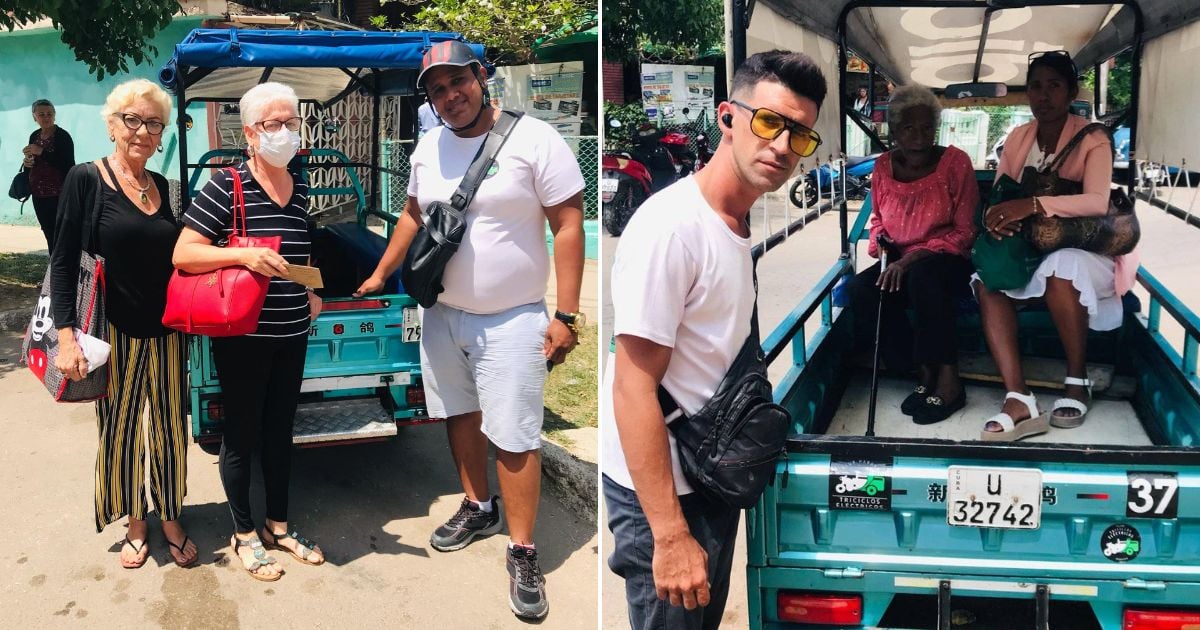In a heartfelt demonstration of community spirit, the Electric Tricycle Club in Havana offered complimentary transportation to patients and their families at Havana’s Oncology Hospital on Monday. This initiative was part of the club's celebration of its second anniversary. Georkys González Abad, a club member, announced on the Facebook group "Club Triciclos Eléctricos Habana" that “all motorcycles will be available to assist families and patients visiting the oncology hospital, ensuring they have transportation to and from their appointments.”
The morning rides were completely free and voluntarily organized by club members, who provided their vehicles and contact information for those needing the service. In a subsequent post, González shared an uplifting message about taking action without waiting for perfect conditions. “If something matters to you and you want to do it ‘sooner or later,’ do it now... We don’t need magic to change the world; everything we need is within us,” he stated. This message was accompanied by a gallery of images showing the initiative's warm reception by patients and their families.
Community Efforts Amid Economic Challenges
The club also reached out to CiberCuba to spread the word about their experience: “A motorcycle club, called Electric Tricycles Havana, provided free taxi service to patients and families, bringing a glimmer of hope.” They appealed for support to ensure such actions are remembered and serve as inspiration for others.
These citizen-led efforts, born from empathy and direct action, hold significant value in a context where transportation and medical care challenges impact many Cubans. Amid Cuba's severe economic decline, marked by shortages of food, medicine, and basic services, community solidarity has become a crucial resource for tackling extreme situations.
Other Acts of Kindness in Cuba
A case exemplifying this reality is that of Ahittana, a girl with Lennox-Gastaut syndrome in Pinar del Río. Thanks to donations from Cubans both inside and outside the island, her family was able to purchase a home near a pediatric hospital, allowing them to provide more suitable and safe care in an environment adapted to her medical needs. Her mother expressed deep gratitude to those who made this possible, emphasizing that without their help, her daughter might not be alive.
In another touching display of solidarity, hundreds of people in Santiago de Cuba flocked to the home of opposition leader José Daniel Ferrer, who, with the help of family and friends, cooked and distributed large quantities of rice and beans for free in his neighborhood.
Additionally, two women organized a collection to deliver donations to children at the Amparo Filial Home in Havana. Their efforts brought clothes, toys, powdered milk, and other essential items, bringing joy to the children and their caregivers. The organizers noted that, despite their limited resources, they couldn’t stand by in the face of such need. Their actions were widely celebrated on social media as a testament to social commitment in the absence of state responses.
FAQs on Community Support in Cuba
What was the purpose of the Electric Tricycle Club's initiative in Havana?
The Electric Tricycle Club's initiative aimed to provide free transportation to patients and families at Havana’s Oncology Hospital as part of their second-anniversary celebration.
How did the community in Santiago de Cuba demonstrate solidarity?
In Santiago de Cuba, community members demonstrated solidarity by gathering at José Daniel Ferrer's home, where he and his supporters cooked and distributed food to those in need.
What impact did donations have on Ahittana’s family in Pinar del Río?
Donations from Cubans both inside and outside the island enabled Ahittana’s family to purchase a home near a pediatric hospital, allowing for better care tailored to her medical needs.
